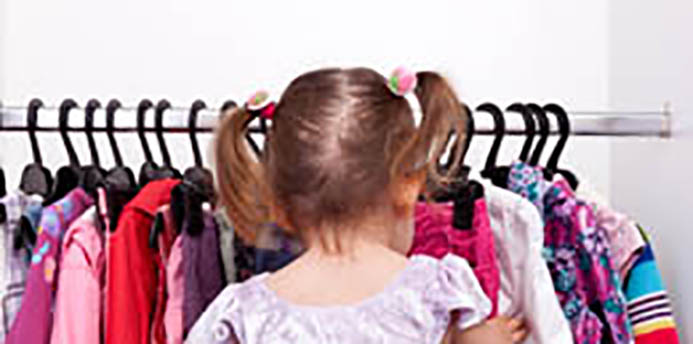Soon enough, the frenetic pace of school and activities will kick in. We’ll have little time to clean out closets, let alone make dinner for our families.
And while time spent indoors with your kids organizing their rooms doesn’t sound appealing in August, come September you will reap the rewards of order and efficiency. The trick is to get your kids actively engaged in cleaning up their stuff. Here’s how:
Partner with your child in the process
Let’s face it, who hasn’t snuck in and cleaned out their kids’ rooms while they are away?
But your child should absolutely help, stresses Linda Goldman, Certified Professional Organizer Linda Goldman of Altogether Organized—unless he is simply too young to understand the concepts of keeping and giving away.
Make sure to:
- Reinforce ownership of and responsibility for their possessions and stuff, then let your kids need to decide what to keep, what to donate and how to organize it.
- Help them to develop an organizational system that will work for them, not necessarily you. If they don’t like it, they won’t use it.
- Sit down with your child before you start and help him develop a list of criteria. For example, when it comes to the massive pile of t-shirts lying on the closet floor, suggest that any shirt tied to a memory he keep, but those in bad condition (ripped, stained, worn) can be tossed or donated.
- Listen to your child. Remember that what has meaning for you may not be the same for him, and vice versa.
Be a good role model
Here’s the hard truth. If you are a hoarding slob, good luck getting your kids to clean up and organize. John Duffy, clinical psychologist and author of “The Available Parent: Radical Optimism for Raising Teens and Tweens,” reminds that as with most things in child rearing, they look to you for how to behave. Two tips:
- Show them that you take the time to clean out your closet, keeping the shoes and clothes you still use and donating those you don’t.
- Help them sort through school papers. Goldman’s rule of thumb: keep those that show your kids’ creativity and personality vs. schoolwork that doesn’t. When it comes to spelling or math sheets, take the time to acknowledge her achievement, save it and show it to Dad, then toss or recycle.
Make it a successful project
Just because you have energy to tackle his room in one day, doesn’t mean he does. Whatever you can do to ensure that it’s a positive, fruitful experience, the better.
Take into account your child’s maturity and attention span when you tackle clean-up. As with adults, it’s often easier to hit smaller projects one by one in shorter chunks of time than to commit to organizing an entire room in one day.
Start with an area that’s not going to be too hard or discouraging and only focus on one category at a time. For example, tackle projects like last year’s schoolwork first. If stuffed animals are hardest for your child, sort those after she’s gotten other practice letting go.
Every system needs tweaking. If you find he’s not really using the storage system you put in place together, ask him why and figure out together how to make it work better.
Set up a Memory Box
Goldman recommends memory boxes for kids. “It doesn’t matter whether it’s plastic or something more precious,” she explains. “What matters most is that she decides what goes in the box.”
- For her to buy into the box, it has to be what she—not you—finds most meaningful at that particular time.
- Choose a size that seems reasonable for your child and will be one she wants to keep as an adult.
- Ask her to think about what makes something truly special. For example, after a couple years, the “participation medals” your child got from camp may not be as important as the one trophy she got for a real achievement.
- Start your own memory box. That way if she wants to toss something that you find precious, you can just add it to yours and let her keep ownership of her own box.
Keep a healthy perspective
Remember that your child is developing organizational skills, says Duffy, and above all have patience and a good sense of humor. As with most things in life, you need to know when to just let it go.

